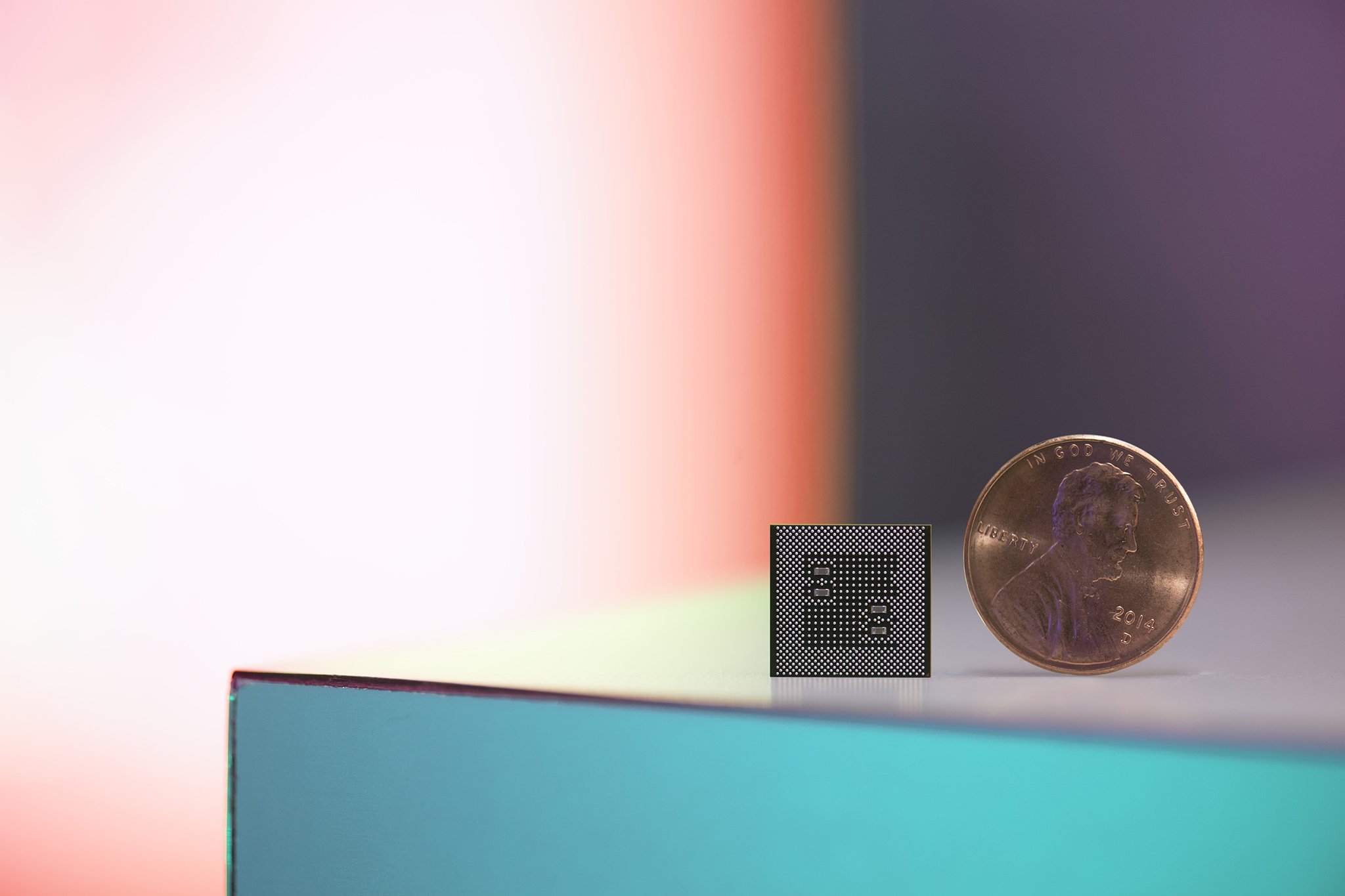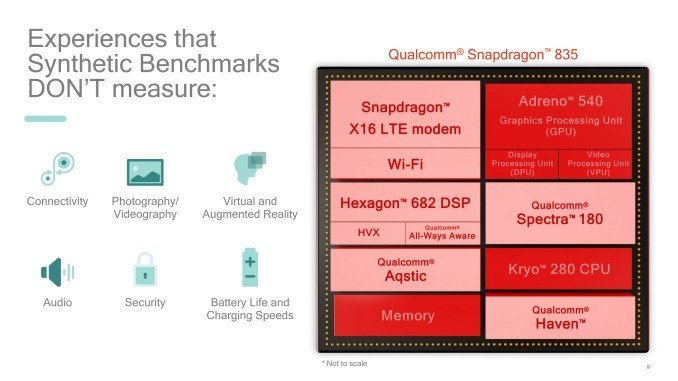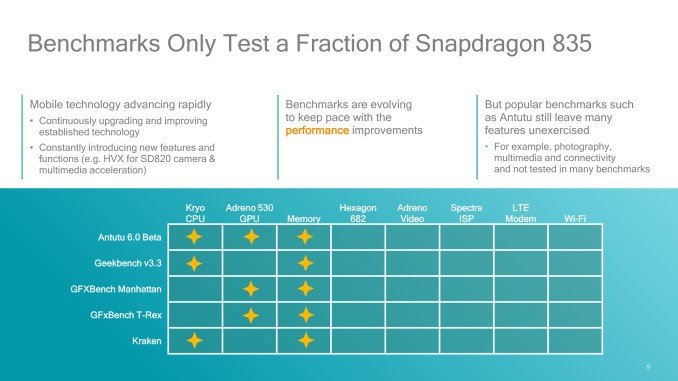Qualcomm doesn't want you to take its Snapdragon 835 benchmarks too seriously

Qualcomm is in a bit of a bind. The company is readying its first Snapdragon 835 chips for the world's best phones, and though Samsung — the world's biggest Android manufacturer — will be co-opting much of the releases's spotlight with the Galaxy S8, Qualcomm wants to make it clear that there are still many advantages, both for other companies and consumers, in going with its products.
It pointed out that no other company fulfils the promise of a platform architecture like Qualcomm.
So it's trying to play two hands at the same time. Last week, it offers journalists a glimpse at what makes the Snapdragon 835 tick, including the opportunity to benchmark a MDP unit (Mobile Device Platform) that runs the latest hardware and a stock version of Android Nougat. Judging from the thorough set of benchmarks by Anandtech, the Snapdragon 835 is an evolutionary upgrade from the 820/821 in terms of CPU and GPU performance, and in a couple of benchmarks actually falls behind its predecessor.

Nominally, though, users can expect a 10-25% gain in CPU performance, and around a 20-30% gain in graphics abilities, switching from the Snapdragon 820/821 to the 835, which is significant but not groundbreaking. And then there's other more comparable SoCs like Huawei's Kirin 960, which despite being released in November is neck-and-neck with the Snapdragon 835 in many performance benchmarks.
That's why Qualcomm doesn't want the story to end there, and rightfully so. It went out of its way to show that CPU and GPU benchmarks are no longer indicative of the company's strengths as a whole, which is why it went on a media blitz this month to push the message that its processors are actually "platforms".

To that end, it made an effort to point out that no other company fulfils the promise of a platform architecture like Qualcomm: in addition to the CPU, GPU and memory, there's camera performance, video encoding and decoding, audio excellence, charging improvements, biometrics integration cellular advancements, and readiness for VR standards. But while these are all essential parts to a SoC platform, the computing and memory speeds are the most easily quantifiable, and to a subset of the population have a very heavy impact on buying decisions. This is true more so in the desktop space, but as Qualcomm butts up against Moore's Law the same way Intel and AMD have in the desktop world, it will continue having to find new ways to market its product (and platform) advantages.
The most important announcements at MWC 2017 were also the most boring
Much of that advantage, at the end of the day, will come down to how much more efficient the Snapdragon 835's 10nm manufacturing process is, and how much that will benefit the battery life of the average phone user. Early benchmarks on a non-commercial piece of hardware won't be able to tell that story, so we'll have to wait until the first phones ship with the part — the Galaxy S8, the Sony Xperia XZ Premium, and many others — to learn that particular part of the tale.
Get the latest news from Android Central, your trusted companion in the world of Android
In the meantime, Anandtech sums it up nicely:
Based on these preliminary numbers and feature additions, the Snapdragon 835 looks like a solid evolutionary upgrade over the S820.
What do you think of the Snapdragon 835 so far based on what you've seen and read? Let us know in the comments!

Daniel Bader was a former Android Central Editor-in-Chief and Executive Editor for iMore and Windows Central.
